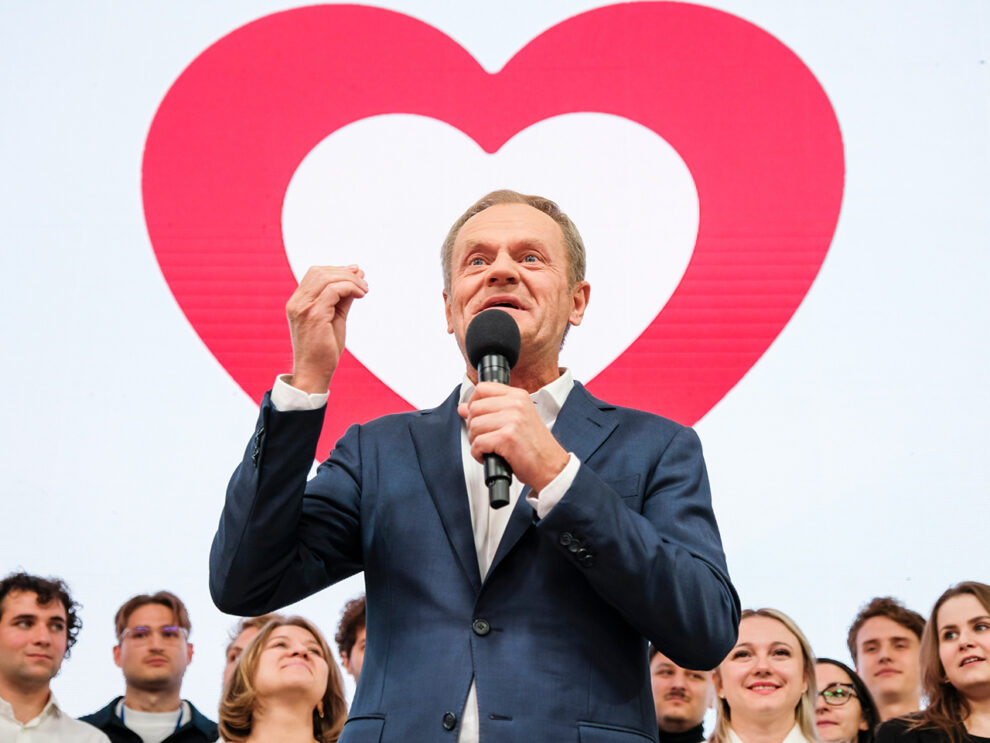The Biden administration isn’t openly celebrating the apparent ouster of Poland’s right-wing government in elections this week.
But in private, the president’s advisers are breathing a sigh of relief.
The White House sees the surprise success of Polish opposition parties, led by the Civic Coalition of Donald Tusk, as a boon for Ukraine and a win for democracy in Europe, according to three Biden administration officials. They, like others, were granted anonymity because they were not authorized to speak publicly about another nation’s election.
The results of the Sunday election startled many observers, especially after the ruling right-wing Law and Justice party was accused of using state and media resources to tip the landscape in its favor. Poland also had recently said it will stop sending weapons to Ukraine amid a trade dispute.
The election results could improve U.S.-Polish relations as well as ties between Warsaw and Brussels. Both Washington and the European Union were increasingly worried about the authoritarian leanings of the ruling party, which have put Poland on a collision course with Brussels over the years, with billions in EU funds on the line.
“It looks like the center has held in Poland,” said Daniel Fried, a former U.S. ambassador to the country.
Democratic lawmakers were among the most vocal in cheering the outcome, with some saying the results would align Poland again with Western democracies that respect the rule-of-law, human rights and press freedoms.
“This election really reinforces Poland as a strong, vibrant democracy, a participatory democracy, where elections matter a great deal and where the values shared by the E.U. and U.S. are certainly reinforced,” said Rep. Bill Keating (D-Mass.).
U.S. presidential administrations generally avoid commenting in-depth on other countries’ internal politics — especially when the country is an ally. The White House declined formal comment for this story.
State Department spokesperson Matthew Miller, however, said in a statement on X, the social media site: “The record voter turnout in Poland’s elections is a strong expression of the democratic will of Polish citizens.”
There had been worry among White House aides that Poland — despite being an early supporter of Ukraine by hosting refugees and sending weapons — could over time back off its pro-Kyiv position.
Polish Prime Minister Mateusz Morawiecki said three weeks ago that Warsaw stopped supplying weapons to Kyiv and is focusing on arming itself instead, amid a dispute over Ukraine’s agricultural exports.
In the wake of the election, “we were pleased to see the democratic process work,” a fourth U.S. official said. “Poland is an important partner and we’ll work closely with the government that is formed.”
Rep. Marcy Kaptur (D-Ohio), who leads both the congressional caucus on Ukraine and Poland, called the election Poland’s most historic since the fall of the Soviet Union, especially given the large turnout.
She was hopeful the liberal coalition government likely to form would be effective in “resisting any authoritarian tendencies in that part of the world and continue on a pathway to integrating with the community of Europe and our NATO allies.”
Kaptur also expressed hope that Poland and Ukraine would settle their dispute over agricultural products.
The Law and Justice party remained the top vote-getter but fell well short of a majority, which means a coalition of more centrist parties is likely to sweep into power.
The transition period may take months — and a future prime minister is still to be confirmed, though it could be Tusk — so Biden administration officials indicated they would remain wary against any attempt at election chicanery.
Poland’s long opposition to Russian imperialism limited any chance of a Moscow puppet seizing power in Warsaw, but there had been fear that another term for Law and Justice would have been a bad omen for European unity. Civic Coalition leader Tusk is a former president of the European Council.
The EU already has to contend with the erosion of democracy in Hungary under Prime Minister Viktor Orbán.
New concerns arose inside the Biden administration after a pro-Russian, Orbán ally won a recent election in Slovakia, and following last year’s win by hardliner Giorgia Meloni in Italy, though her government has remained a staunch supporter of Ukraine.
Source: Politico















